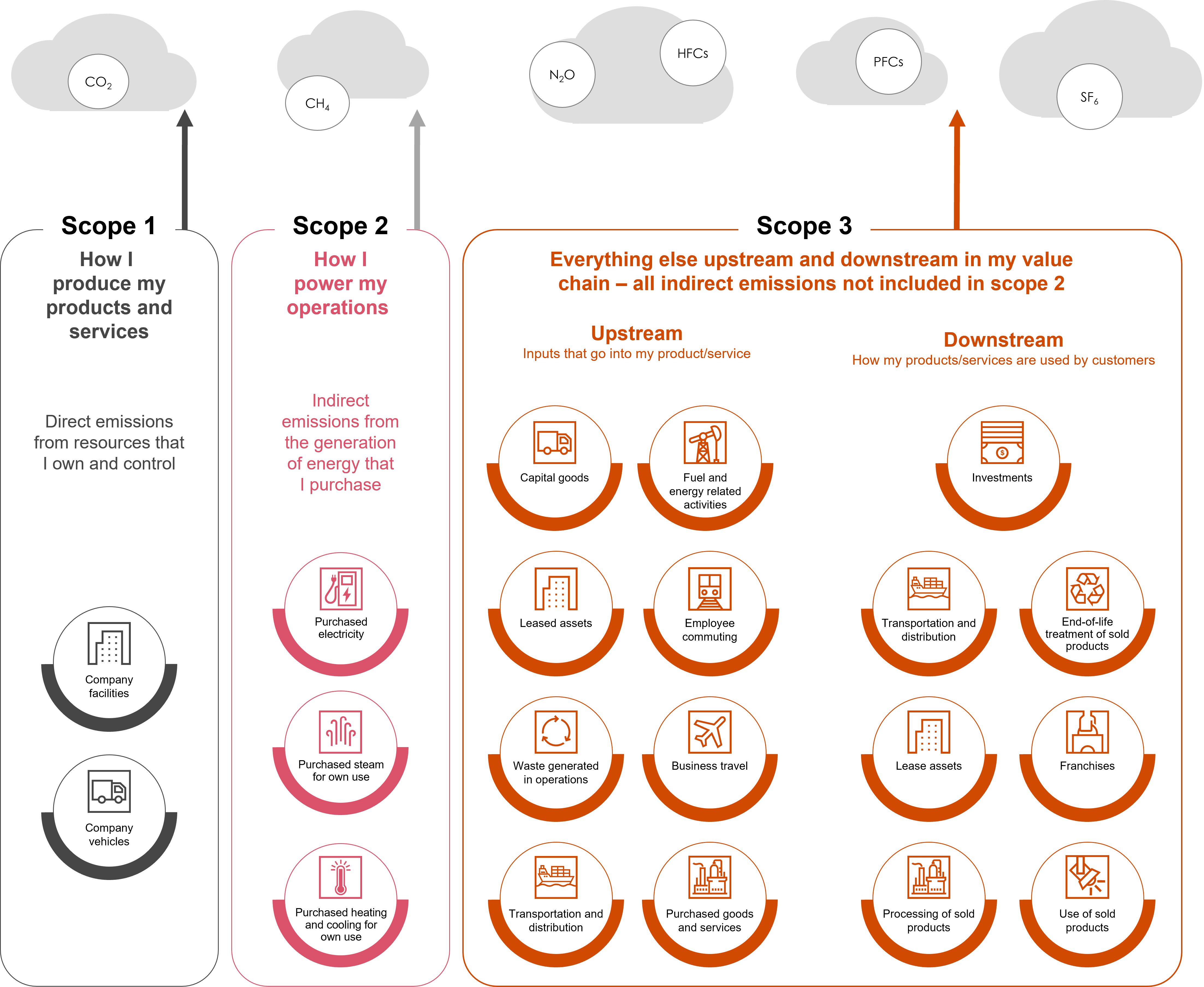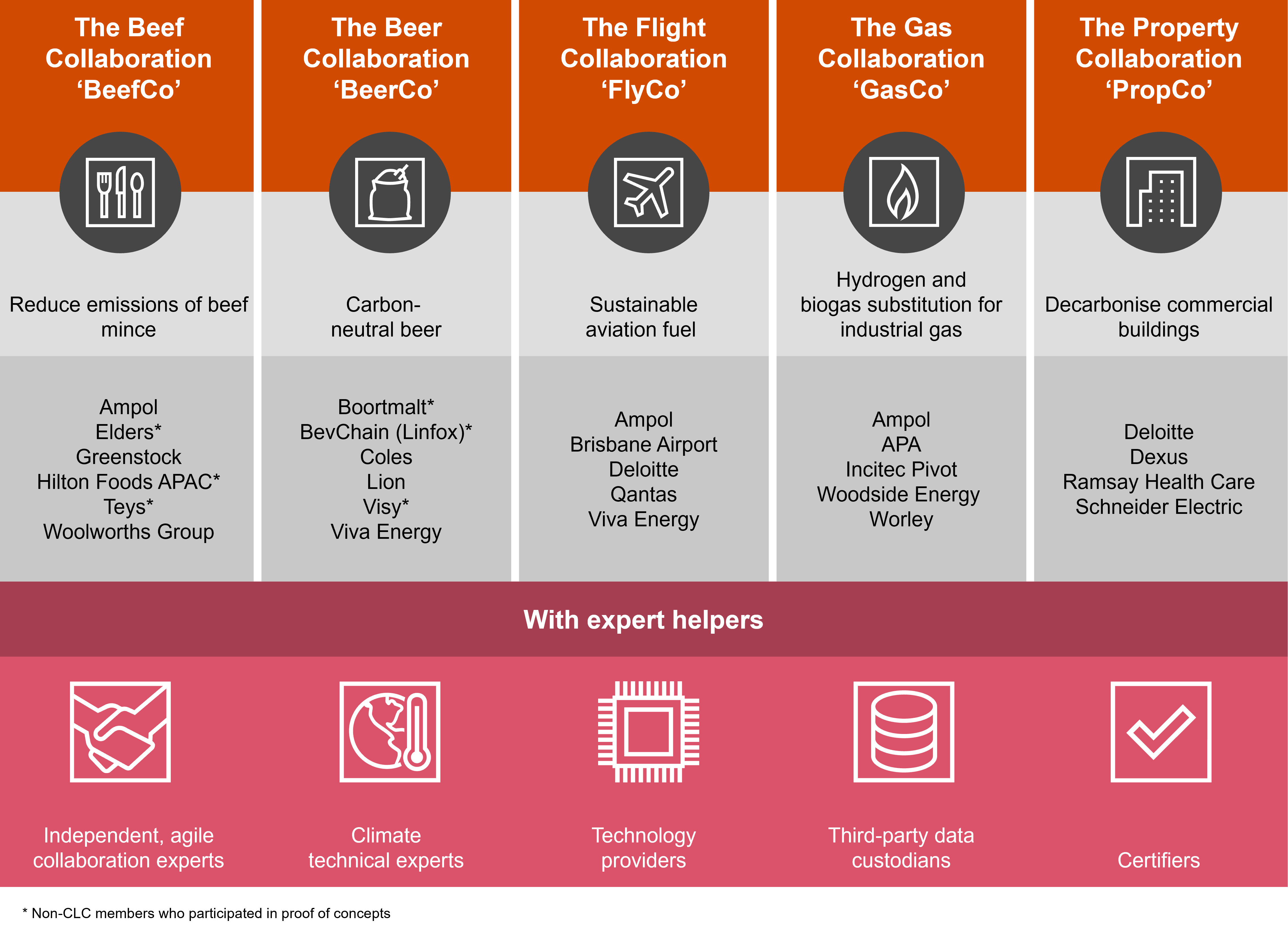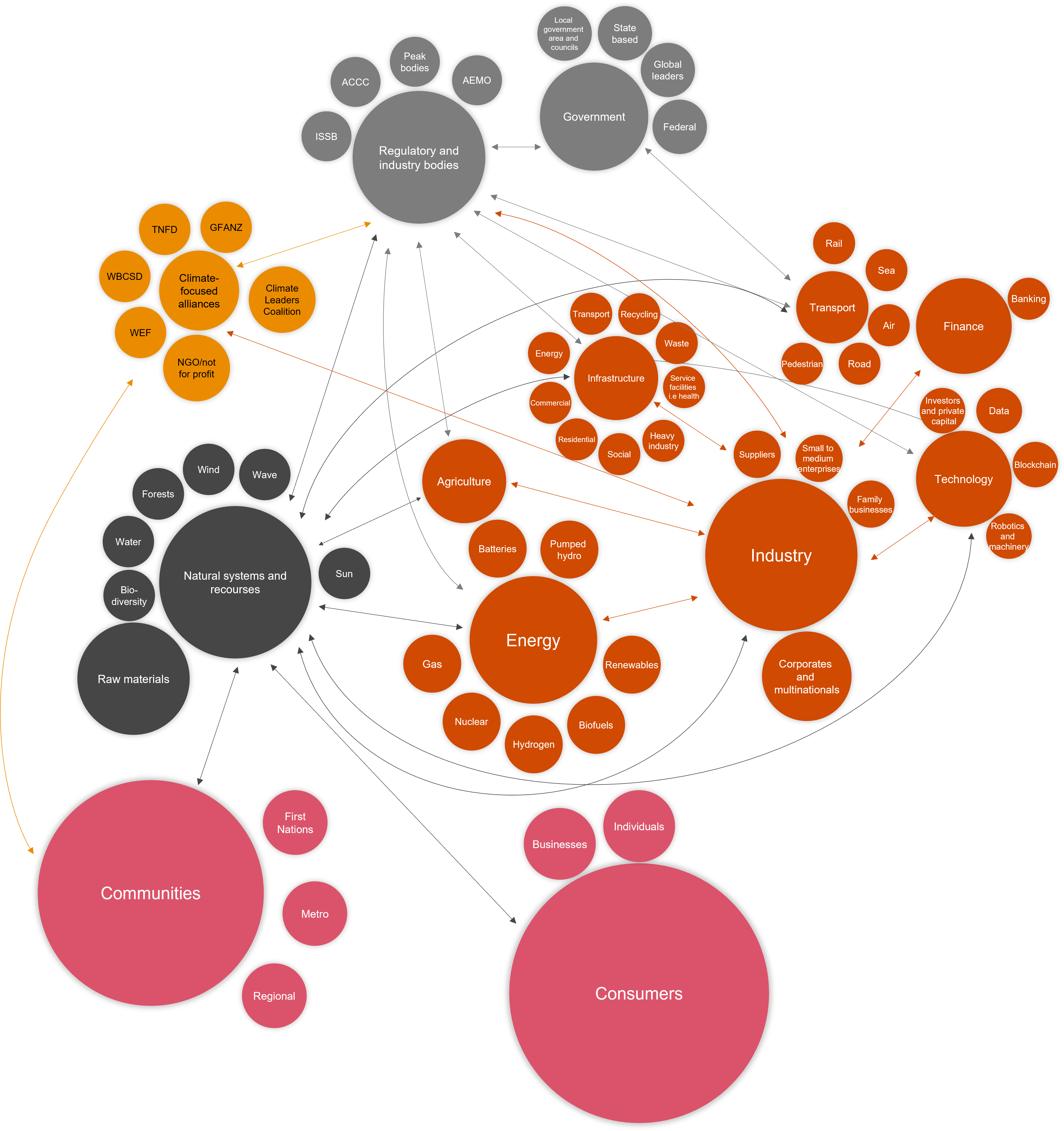Project experience
The Australian Climate Leaders Coalition

Community of solvers tackles the Scope 3 emissions equation
Client: The Australian Climate Leaders Coalition
Location: Nationwide
Sector: Consumer packaged goods, Transportation, Energy, Built environment, Fresh foods
Services: Project scoping and design, collaboration and systems change, agile project management, Scope 3 Roadmap development, event design and preparation, communications and media, transparency and reporting, supply chain
PwC teams involved: Energy Transition, The Impact Assembly, Assurance, Supply Chain Consulting
Scope 3 greenhouse gas emissions – the emissions produced within an organisation’s value chain – are usually considered the most difficult to abate. Many see them as being in the too-hard basket because they fall outside a business’s direct control. But action on scope 3 is urgently needed to limit global temperature increases.
In a survey, members of the Australian Climate Leaders’ Coalition (CLC), a group of cross-sectoral Australian corporate CEOs, ranked scope 3 emissions as one of their most pressing challenges to address. Scope 3 might be difficult, but these CEOs wanted to take strong, practical action.
When the CEOs approached PwC Australia, our team jumped at the chance to help solve the scope 3 emissions challenge. We hadn’t seen anyone driving collective action on scope 3 emissions in Australia, but we could see the potential to bring together a community of solvers to build momentum on this important problem by designing an approach and developing a scope 3 roadmap.
The collective ambition was to move beyond measurement and reporting, instigate practical action to reduce scope 3 emissions and create value chains aligned with the goal of limiting global warming to 1.5 degrees.
Together with many of the CLC’s 45 CEOs and some from outside the CLC, we’ve been on a journey of discovery, testing and implementation – activating five scope 3 ‘proofs of concept’ across and beyond CLC members’ value chains, culminating in a Scope 3 Roadmap to guide CEOs around the globe which launched at COP27 and publicly in November 2022.
Scope 3 emissions are everyone’s business
Scope 3 emissions account for as much as 65–95% of most companies’ greenhouse gas impact, so addressing scope 3 is a crucial component of reaching net zero emissions by 2050.
What's more, in October 2022, the International Sustainability Standards Board confirmed scope 3 disclosure requirements will be included when the first two standards on sustainability-related disclosures (IFRS S1 and IFRS S2) are finalised in early 2023. These standards have the support of Australian government agencies and will continue to evolve.
Scope 3 emissions explained

Source: Scope 3 Roadmap Practical Steps to Address Scope 3 Emissions – Written by CEOs for CEOs, November 2022, page 7.
While it’s easy to assume that Scope 3 emissions will be resolved if everyone takes care of their own patch by focusing on scope 1 and 2 emissions, it has become increasingly evident that time is against us and intervention is needed.
CEOs from the CLC have been bold, taking ambitious action on climate change. After the successful release of the CEO's Roadmap to 2030, and after surveying members on the climate issues that matter most to them, the group set its sights on a common goal of reducing scope 3 emissions.
When the CLC CEOs asked our team to help map a path forward on scope 3 emissions, we brought our expertise in systems change, agile project management, and collaborative design to the challenge.
Mapping a practical path to solve scope 3
We began by pulling together the insights of global experts, both within PwC’s network and further afield, to define possible impact areas on scope 3. On presenting this to the scope 3 steering committee, they agreed that they wanted to create something practical to enable others to take meaningful action, such as a Roadmap. Rather than including theoretical case studies, our goal was to create real collaboration and practical applications in the form of proofs of concept across a range of relatable industries in which emissions could be directly influenced.
We then assembled an initial three proofs of concept and set about engaging and onboarding organisations to participate. Another two proofs of concept were added soon after. The five proofs of concept now included commercial buildings, sustainable aviation fuel, red meat, carbon-neutral beer, and hydrogen and biogas substitution for industrial use of natural gas.
Scope 3 proofs of concept

Source: Scope 3 Roadmap Practical Steps to Address Scope 3 Emissions – Written by CEOs for CEOs, November 2022, page 4.
With support from CLC CEOs, we shaped up design sprints and a diverse support team for each of the five scope 3 proofs of concept partnerships. The teams included project managers, representatives from CLC member companies, and supply chain experts from PwC. A sponsoring CEO was appointed for each proof of concept.
Agile collaboration gets underway
From January to August 2022 each proof of concept began collaborating to reduce scope 3 emissions across their value chain, aligned to the common goal of limiting warming to 1.5 degrees.
Naturally, each proof of concept had unique challenges, and it quickly became apparent that everyone was in new territory and experiencing a radically new way of working. Competitors and value chains were collaborating with transparency at a level never seen before and with a rare systemic approach to problem-solving.
When we started the project in late 2021, all project participants had little experience working together with value chains in such an open, transparent and collaborative way. In those early stages, our collective thinking was that data and measurement would be the biggest challenge. However, data was relatively easy to manage with a trust-building exercise, a data-sharing agreement, and a third-party data custodian.
Together the participants in the proofs of concept addressed factors including materiality (key emissions sources and the methodology for assessment), supplier and customer engagement (including building trust and transparency on commercially sensitive matters) and measurement (how to measure and assess accurately, and share data). But the bigger impact was how this work highlighted the opportunity for new growth markets and for organisations focused on scope 3 to differentiate to future generations of customers and talent. The new capabilities required to support organisational, value chain and customer transition, and how new models of partnering and a systems mindset are essential to how organisations must shift for sustainability going forward.
The systems principle

Source: PwC Australia, featured in Scope 3 Roadmap Practical Steps to Address Scope 3 Emissions – Written by CEOs for CEOs, November 2022, page 9.
“Having PwC lead this work for the CLC was key to getting it off the ground,” said Lynette Mayne, The B Team Australasia, CLC Executive Chair. “PwC’s collaboration skills enabled all the dots to be connected objectively, and helped build an ecosystem of expertise with injections of relevant knowledge at the right time.”
The companies involved in the proofs of concept are still working together and iterating their approaches to implement the reduction initiatives identified. Many have expressed interest in incorporating their proofs of concept processes into their business-as-usual routines to scale impact from a product or service focus more broadly. CEOs involved in the proofs of concept have now set scope 3 stretch goals, and CLC CEOs will explore how to scale up their action and further amplify their impact.
Scope 3 brings challenges and opportunities
Reflecting on our work with the CEOs and value chains, it is clear that scope 3 is not an isolated challenge. Solving takes a systemic lens, new models of collaboration, and full business transformation.
We have seen that big challenges can be tackled by starting small, by testing and refining, and being agile and prepared to pivot when challenges emerge. We enabled competitors to collaborate to make progress and witnessed the collective influence that appears when they do.
Fundamentally, we have learnt that scope 3 is a shared challenge with a shared responsibility to solve. Building trusted, interdependent and mutually accountable relationships with value chain partners will be integral to success. We must focus on what can be achieved together, from tackling cost pressures to building new markets.
The benefits of radical, collaborative action on scope 3 include innovation and the creation of new markets and new ways of partnering. The trust and relationships built through collaboration on scope 3 can also provide a headstart to CEOs to set up similar business models and ways of working to tackle other complex systems issues such as biodiversity and broader Sustainable Development Goals (SDG).
Addressing scope 3 is hard, but it is possible. No matter how complex the challenge, we must get started. Already, the International Sustainability Standards Board (ISSB) of the International Financial Reporting Standards (IFRS) Foundation has voted unanimously to require scope 3 disclosures. There is no time to waste. With the high likelihood that scope 3 emissions reporting will soon be mandated, we hope that the CEO Scope 3 Roadmap will encourage many more companies to get started now.
About the Australian Climate Leaders Coalition
The Australian Climate Leaders Coalition (CLC) is a group of cross-sectoral Australian corporate CEOs supporting the Paris Agreement commitments and setting public decarbonisation targets. Its purpose is to provide a common voice on why big business is seeing decarbonisation as a way to ensure long term economic sustainability – and how they can have an impact and realise competitive advantage through early action in an apolitical and non-confrontational manner. The CLC is action orientated and provides an open, confidential and authentic forum for CEOs to share the challenges of their decarbonisation journeys. It is inclusive and provides information and case studies for those CEOs not yet taking action and wanting to understand their options.
Note: PwC Australia is not a member of the Australian Climate Leaders’ Coalition.
Contact us










